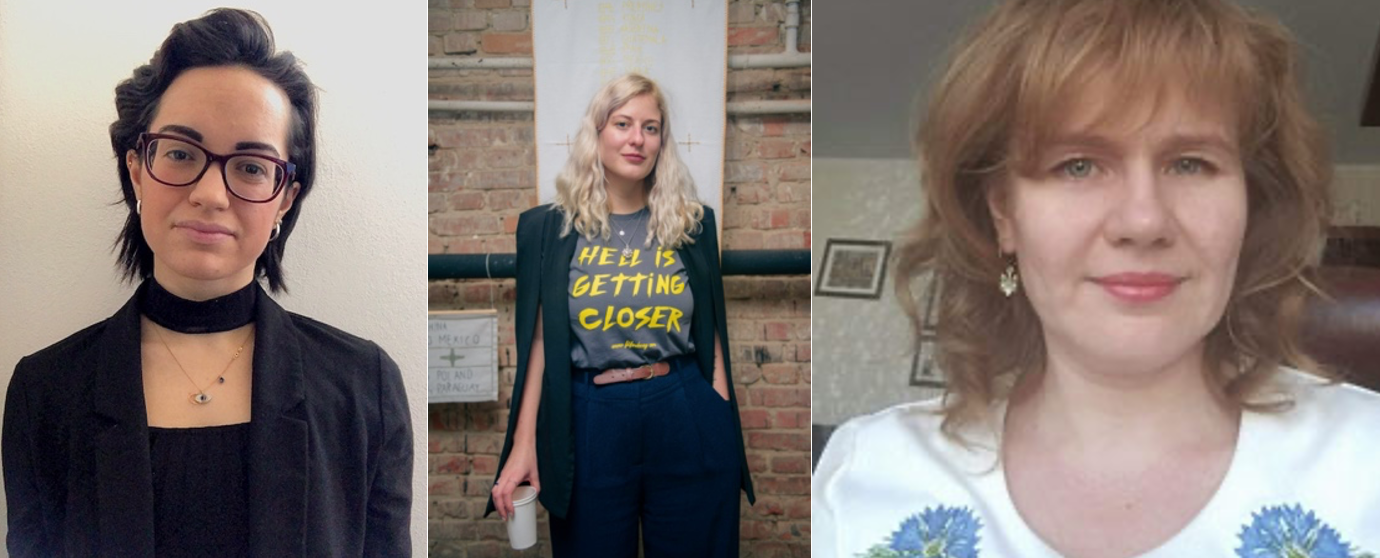Citizenship and Identity: IDP Dimension
Citizenship and Identity: IDP Dimension
Internally displaced persons (IDPs) make up for the majority of migrants compared to refugees and asylum seekers. Internal displacement in Ukraine is now the most severe crisis of such kind in Europe since the Balkan Wars. On one side, IDPs are not legal subjects according to the international framework for the protection of IDPs, whereas on the other side, comparative migration and security studies have rarely questioned to what extent the securitization of citizenship has an impact on IDPs.
Because of these very two reasons, our project looks at what it is like to be labelled as IDP in Ukraine and how this categorization affects their identity and the provision of social guarantees. Building on the debate between forced migration and refugee scholarship about the efficacy of the international approach to the protection of IDP rights, this project stems from a recent policy report aimed at conceptualizing the way in which citizenship has become restrictive practice to manage politically sensitive subjects through politics of “sovereign discrimination”.
The cooperation between academia, civil society and the cultural sector is a crucial and peculiar component of this project: after sharing ideas for joint action during the capacity-building programme Ukraine Calling, we felt the urgent need to use our specific competences in order to address the effects of internal displacement on civilians’ sense of belonging. At the same time, we are aware of the logistic difficulties connected to the COVID-19 pandemics that prevent (some) of us from
conducting fieldwork. Therefore, we thought about involving the art/civil society community in the creative process itself.
By means of a virtual map representing the journeys of many IDPs, we are going to collect important stories of migration just focusing on broad questions, like “what did I loose and what did I find? Who am I today?”
Our project is committed to synergistic progress and, most importantly, it is conceived to function as a laboratory; therefore, it is not afraid of creative chaos. Besides stimulating a reflection around the question of mobility and the forced-voluntary dichotomy’s stickiness, the ambitious idea behind this project is to draw a roadmap about possible scenarios for the future of IDPs in Ukraine, which is not limited to a potential return or permanent resettlement, but on the contrary, it is influenced by personal drivers that needs to be heard and brought to the attention of those who never experienced displacement.
Website of the project: https://www.idpdimension.com
Martina Urbinati, Yuliia Zakharchenko, Nastia Khlestova

Martina Urbinati - project author and manager- junior researcher, currently Italy-based. Martina holds a MA in Interdisciplinary Research and Studies on Eastern Europe at the University of Bologna, Italy. She defended her graduation thesis on disenfranchisement of internally displaced persons in Ukraine, tackling topical issues such as decentralization and electoral reforms. In 2020, she was a research intern at the Centre for East European and International Studies (ZOiS) in Berlin. In 2021 published her first analysis on the topic of the Ukrainian government’s restrictive citizenship policy discriminating against IDPs for the Temerty Contemporary Ukraine Program at HURI Harvard. She is an alumna of the “Ukraine Calling” capacity-building programme along with Yuliia and Nastia.
Nastia Khlestova - project curator - 127 garage – Artist-run Space, Kharkiv. Curator of exhibitions in Ukraine, Poland, and Austria, art historian. Curator and founder of the self-organized space 127 garage. Master’s degree in Art History at the Kharkiv State Academy of Design and Art. Project manager and the curator at the Kharkiv Municipal Gallery (2015-2020), the curator of the NonStopMedia Biennale of Contemporary Art (2018) and others.
Yuliia Zakharchenko - project coordinator, data manager in the Charitable Fund “Right to Protection”, Kyiv/Sloviansk. She has been dealing with the issues of IDPs and conflict-affected populations in Ukraine since 2014 when the armed conflict broke out. She started as a volunteer helping IDPs and then joined CF “Right to Protection” to deliver assistance and promote positive changes in 2015. She has contributed significantly to collecting strong evidence for further interventions and advocacy both at local and national level. She has prepared a series of thematic reports that were used for promoting legislative changes related to IDPs and conflict-affected populations as well as infrastructural improvements at entry-exit crossing points to/from non-governmentally controlled areas of Donetsk and Luhansk regions.

